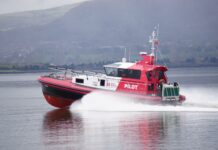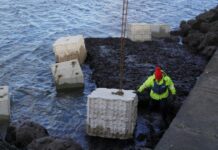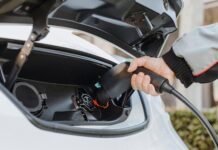Thermo King has provided ThermoLite solar panels on 76 new refrigerated trailers of ECS, a leading European logistics supplier of intermodal transport and integrated supply chain services.
The solar panels will contribute to ECS’ vision of Creating Sustainable and Reliable logistics significantly reducing the refrigeration units’ fuel consumption and carbon footprint.
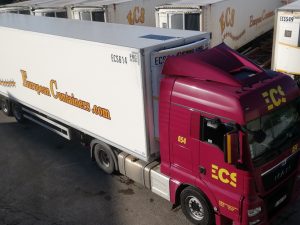 “Thermo King ThermoLite solar panels provide a sustainable power management solution for reefer units, increasing the battery life while reducing fuel consumption and CO2 emissions,” said Samer Hawat, area sales and service manager Belgium and Luxembourg at Thermo King. “Equipped with solar panels, ECS’ refrigeration units will have a source of sustainable power on the road, which will increase the company’s operational efficiency, reduce their environmental footprint and contribute to the strategic sustainability goals.”
“Thermo King ThermoLite solar panels provide a sustainable power management solution for reefer units, increasing the battery life while reducing fuel consumption and CO2 emissions,” said Samer Hawat, area sales and service manager Belgium and Luxembourg at Thermo King. “Equipped with solar panels, ECS’ refrigeration units will have a source of sustainable power on the road, which will increase the company’s operational efficiency, reduce their environmental footprint and contribute to the strategic sustainability goals.”
Before committing, ECS performed a six months field test, monitoring four Thermo King refrigerated trailers with ThermoLite solar panels on four different routes across Europe. The Thermo King TracKing system allowed for remote tracking of battery charge levels and fuel consumption. ECS compared the results with the performance of four other units in their fleet, on similar routes but without the solar panel.
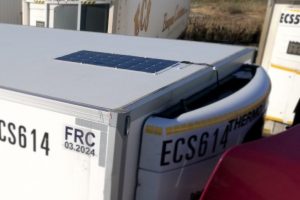 ECS expects the solar panels to improve uptime of their new fleet and estimates to save 76 000 litres of diesel per year. ECS also calculated that the installation of the solar panels will reduce their CO2 emissions by 2 000 tons in 10 years.
ECS expects the solar panels to improve uptime of their new fleet and estimates to save 76 000 litres of diesel per year. ECS also calculated that the installation of the solar panels will reduce their CO2 emissions by 2 000 tons in 10 years.
ThermoLite solar panels ensure that the refrigeration unit’s battery remains continuously charged, extending the battery life and preventing its deterioration. By reducing the operation hours of the unit’s engine the solar panels also contribute to extending the maintenance intervals. Paired with telematics, they allow the fleet managers to be in constant contact with their trailers and access critical unit data at any time to ensure that the load is protected and the unit is running efficiently.










